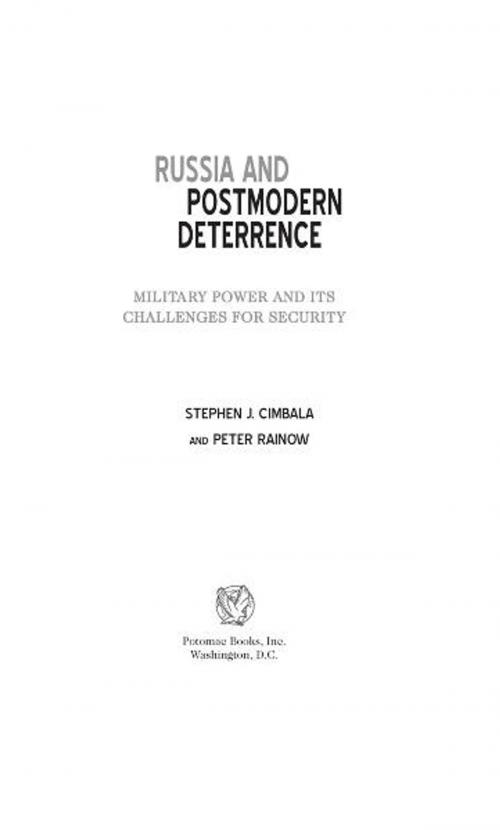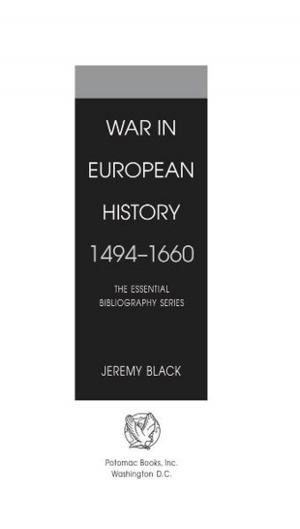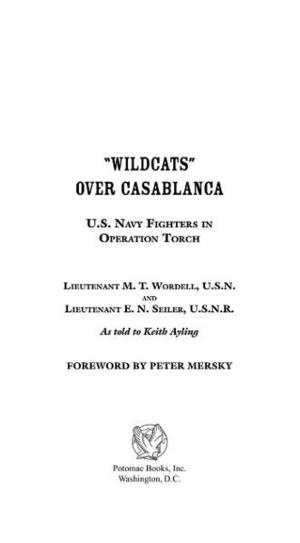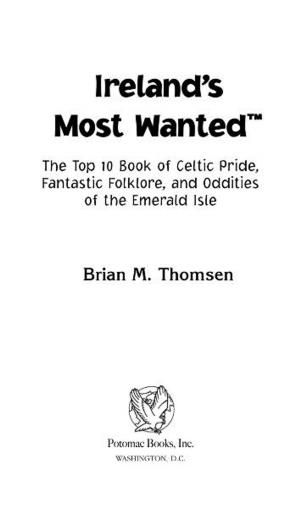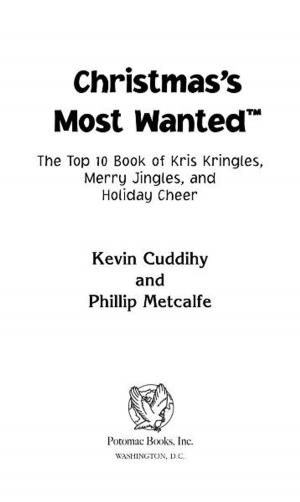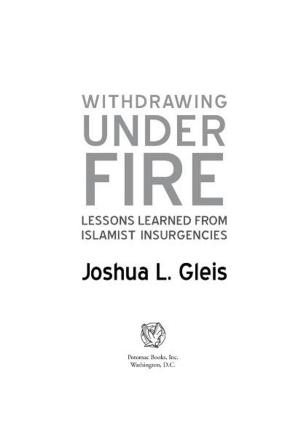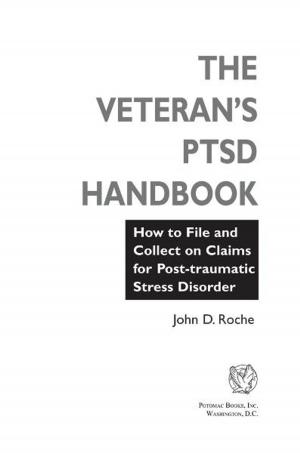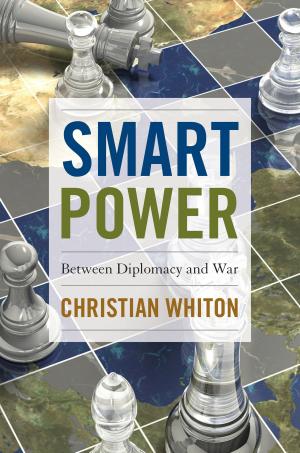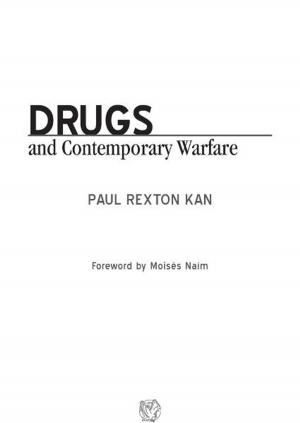Russia and Postmodern Deterrence
Nonfiction, Social & Cultural Studies, Political Science, Politics, Arms Control, History, Asian, Russia, International, International Relations| Author: | Stephen J. Cimbala; Peter Jacob Rainow | ISBN: | 9781612342832 |
| Publisher: | Potomac Books Inc. | Publication: | February 27, 2007 |
| Imprint: | Potomac Books Inc. | Language: | English |
| Author: | Stephen J. Cimbala; Peter Jacob Rainow |
| ISBN: | 9781612342832 |
| Publisher: | Potomac Books Inc. |
| Publication: | February 27, 2007 |
| Imprint: | Potomac Books Inc. |
| Language: | English |
Russia is a post-communist country struggling to adapt to the modern world economically and politically. In the twenty-first century, Russia faces postmodern social, cultural, and political problems with its old policy of deterrence. For RussiaÆs political leaders and military planners, three scenarios define their postmodern setting: 1) the worldÆs leading military and economic powers, with the exception of China, are market-based economies and political democracies; 2) the revolution in military affairs, based on advances in information, electronics, and communications, is driving both civil and military technology innovation; and 3) the Cold WarÆs fundamental war-fighting premises, such as deterrence based on nuclear weapons and on conventional armed forces organized and trained for massive wars of attrition, have changed radically.
These pointsÆ implications for future Russian strategy are profound, Stephen J. Cimbala and Peter Rainow argue. Russia faces an increased presence of its former adversary, the United States, in adjacent territories; an increasingly assertive NATO, which includes many of MoscowÆs former allies; and continued fighting in Chechnya. Ominously, China aspires to overtake Russia as the worldÆs second-ranked military power and establish its hegemony over the Pacific basin. In short, Russia confronts a radically new political and military world order that demands adapting to postmodern thinking about deterrence and defense. The danger is that Russia, realizing that it lags behind in leveraging modern technology for military purposes and that it must scrap its dependence on conscription, now relies on nuclear weapons as its first line of deterrence against either nuclear or conventional attack.
These pointsÆ implications for future Russian strategy are profound, Stephen J. Cimbala and Peter Rainow argue. Russia faces an increased presence of its former adversary, the United States, in adjacent territories; an increasingly assertive NATO, which includes many of MoscowÆs former allies; and continued fighting in Chechnya. Ominously, China aspires to overtake Russia as the worldÆs second-ranked military power and establish its hegemony over the Pacific basin. In short, Russia confronts a radically new political and military world order that demands adapting to postmodern thinking about deterrence and defense. The danger is that Russia, realizing that it lags behind in leveraging modern technology for military purposes and that it must scrap its dependence on conscription, now relies on nuclear weapons as its first line of deterrence against either nuclear or conventional attack.
Russia is a post-communist country struggling to adapt to the modern world economically and politically. In the twenty-first century, Russia faces postmodern social, cultural, and political problems with its old policy of deterrence. For RussiaÆs political leaders and military planners, three scenarios define their postmodern setting: 1) the worldÆs leading military and economic powers, with the exception of China, are market-based economies and political democracies; 2) the revolution in military affairs, based on advances in information, electronics, and communications, is driving both civil and military technology innovation; and 3) the Cold WarÆs fundamental war-fighting premises, such as deterrence based on nuclear weapons and on conventional armed forces organized and trained for massive wars of attrition, have changed radically.
These pointsÆ implications for future Russian strategy are profound, Stephen J. Cimbala and Peter Rainow argue. Russia faces an increased presence of its former adversary, the United States, in adjacent territories; an increasingly assertive NATO, which includes many of MoscowÆs former allies; and continued fighting in Chechnya. Ominously, China aspires to overtake Russia as the worldÆs second-ranked military power and establish its hegemony over the Pacific basin. In short, Russia confronts a radically new political and military world order that demands adapting to postmodern thinking about deterrence and defense. The danger is that Russia, realizing that it lags behind in leveraging modern technology for military purposes and that it must scrap its dependence on conscription, now relies on nuclear weapons as its first line of deterrence against either nuclear or conventional attack.
These pointsÆ implications for future Russian strategy are profound, Stephen J. Cimbala and Peter Rainow argue. Russia faces an increased presence of its former adversary, the United States, in adjacent territories; an increasingly assertive NATO, which includes many of MoscowÆs former allies; and continued fighting in Chechnya. Ominously, China aspires to overtake Russia as the worldÆs second-ranked military power and establish its hegemony over the Pacific basin. In short, Russia confronts a radically new political and military world order that demands adapting to postmodern thinking about deterrence and defense. The danger is that Russia, realizing that it lags behind in leveraging modern technology for military purposes and that it must scrap its dependence on conscription, now relies on nuclear weapons as its first line of deterrence against either nuclear or conventional attack.
